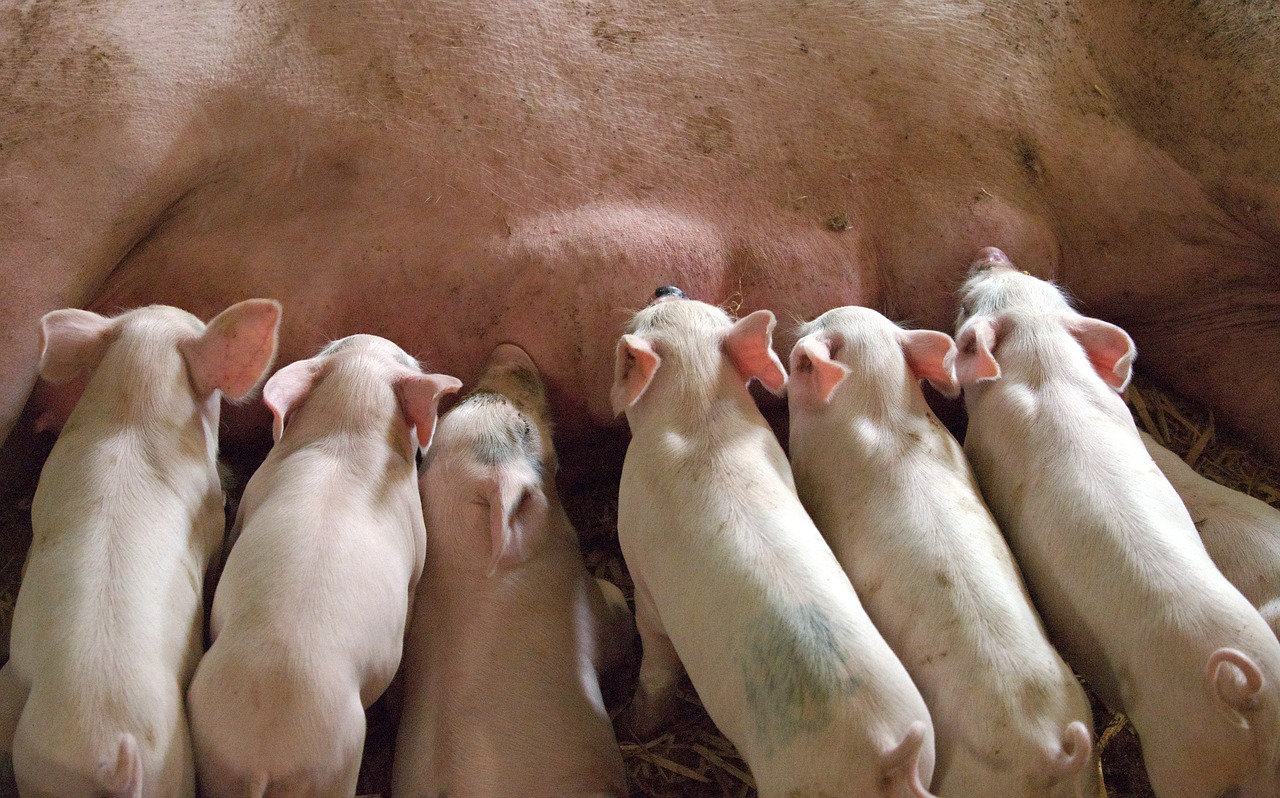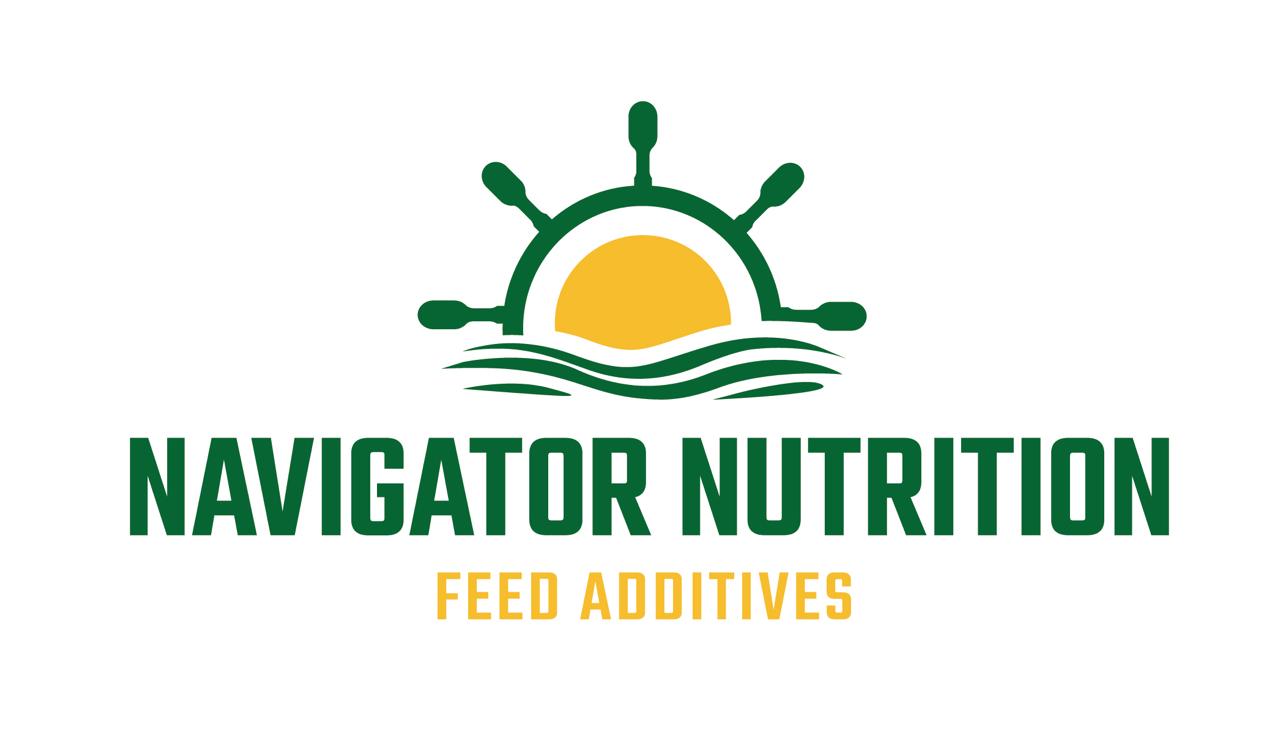Healty animals are high productive animals
Pigs & feed additives: the effects of butyrates
Discover the multiple effects of butyrates in pigs
At different stages of their life cycle, pigs have unique nutritional requirements to ensure optimal growth, health, and productivity of the animal.
Feed additives play a vital role in meeting these needs by:
In sows:
- Improving reproductive performance;
In piglets:
- Enhancing immune function;
In fatteners:
- Helping to controll stress;
- Improving feed efficiency and optimizing growth;
- Supporting digestive health.

Sows
Improving reproductive performance
Ensuring the reproductive health of breeding sows is critical for farm profitability. Butyrate can enhance reproductive performance by reducing cortisol-levels which influence the estrus-cycle and improve embryonic survival, promoting gut health and reducing systemic inflammation, which has positive effects on fertility and litter size. Healthier digestive systems lead to better nutrient absorption, which is essential for maintaining optimal reproductive health. Butyrate can reduce the rate of gilts return to estrus, alter the composition and volume of the colostrum of sows, improve lactation and stimulate the growth rate of piglets [1].
Reducing the effects of stress
In sows stress is known to cause disruptions in the estrus-cycle, early embryonic death, prolonged farrowing and poor lactation. Butyrate helps mitigate the effects of stress by maintaining gut health and reducing inflammation, which can be triggered by stressful conditions. It is also associated with lower blood cortisol levels [2].
Piglets
Nutrient absorbtion and weaning
The weaning period and rapid growth of the animal, place high demands on the digestive and immune systems of piglets. Butyrate can play a crucial role in supporting piglets during this vulnerable phase. It promotes intestinal development, by stimulating the growth and elongation of intestinal villi. This results in better nutrient absorption and a stronger intestinal wall that is more resistant to pathogens.
Enhancing immune function
In intensive farming conditions, pigs are at risk of disease outbreaks, which can impact their overall performance. Butyrate has been shown to have immunomodulatory effects, supporting the pig’s immune system by reducing inflammation. This improves disease resistance and overall health. It has been shown that butyrate helps regulate immune function and lowers the incidence of diarrhea in recently weaned piglets [2].
Fatteners
Optimizing growth and weight gain
Fatteners require a balanced diet to achieve efficient growth and weight gain. Butyrate helps improve nutrient absorption by enhancing gut health. It stimulates the growth and elongation of intestinal villi by encouraging proliferation of enterocytes. It also reduces inflammation in the gut and enhances the integrity of the gut barrier wall. Healthier intestinal villi are better able to absorb nutrients, which contributes to improved growth rates [3]. This is allowing pigs to grow faster and more efficiently.
Helping to control stress
Fatteners, especially in intensive farming environments, often face stress from factors like handling, transport, and environmental changes. Stress in fatteners will negatively impact their immune function, feed conversion rates and overall well-being. It often causes injuries and necrosis. Butyrate helps to control the effects of stress. It improves gut health and decreases inflammation, potentially caused by stress. Butyrate is associated with lower blood cortisol levels [2].
Supporting gut health
Digestive health is crucial for maintaining pig productivity. Poor gut health can result in nutrient malabsorption, digestive disorders, and reduced growth. Butyrate is known for its ability to promote a healthy gut environment by fostering beneficial bacteria. It increases the amount of Clostridium butyricum bacteria in the gut [4]. These bacteria produce large amounts of butyrate in the lower gut. This indicates that supplying the animal with butyrate will enhance endogenous butyrate production, contributing to stronger intestinal barriers and a more resilient gut-microbiota and microbiome.
References:
- B. He, M. Wang, et al. (2016). Effects of sodium butyrate supplementation on reproductive performance and colostrum composition in gilts. Animal, 10(10) 1722 – 1727.
- C. L. Fang, H. Sun, et al. (2014). Effects of sodium butyrate on growth performance, haematological and immunological characteristics of weanling piglets. Journal of Animal Physiology and Animal Nutrition, 98(4), 680-685.
- W. Sun, J. Sun et al. (2020) The effects of dietary sodium butyrate supplementation on the growth performance, carcass traits and intestinal microbiota of growing‐finishing pigs. Journal of Applied Microbiology, 128(6), 1613–1623.
- M. Bernad-Roche, A. Bellés et al. (2021). Effects of Dietary Supplementation with Protected Sodium Butyrate on Gut Microbiota in Growing-Finishing Pigs. Animals, 11(7), 2137.
Want to know more?
Don’t hesitate to contact us!
